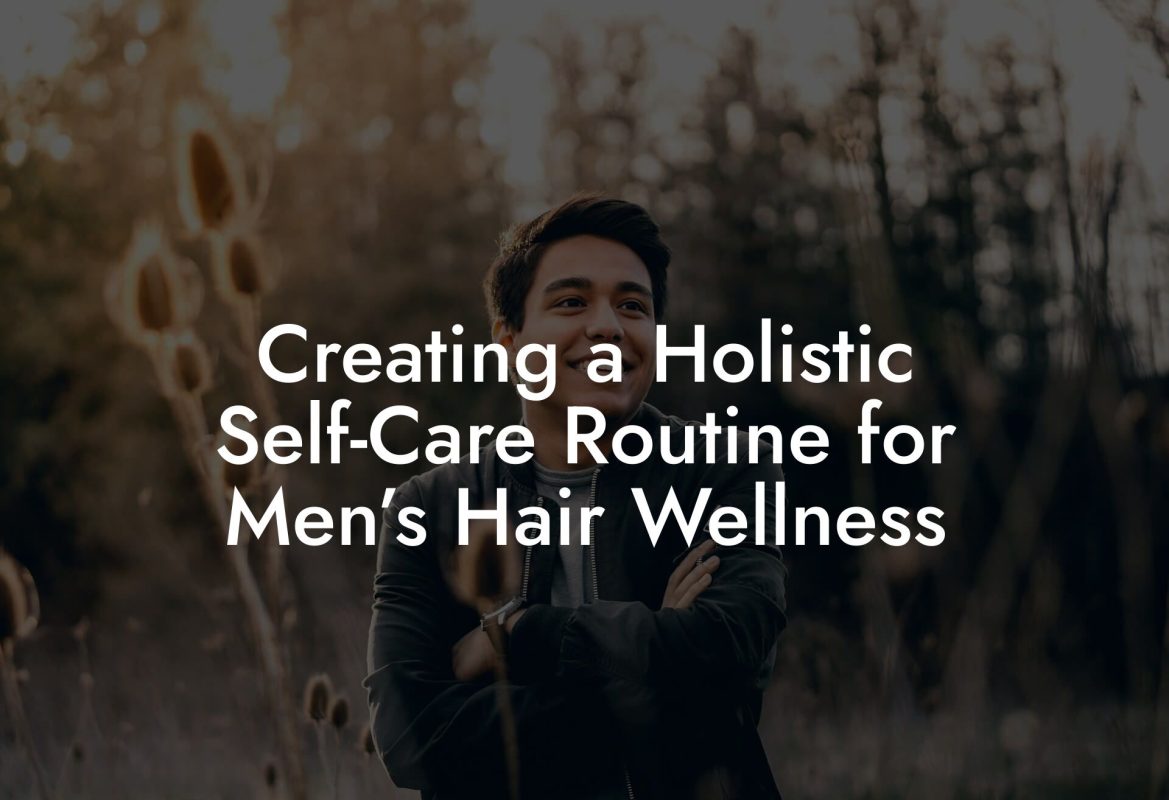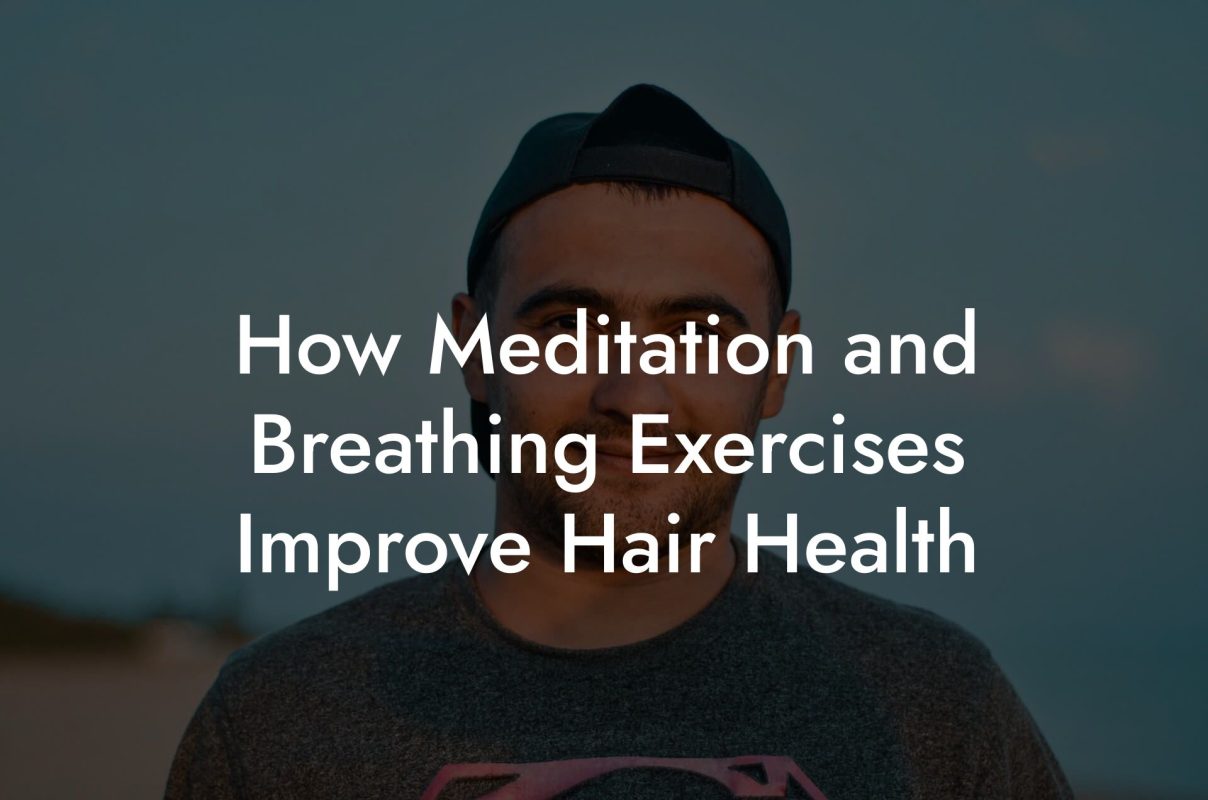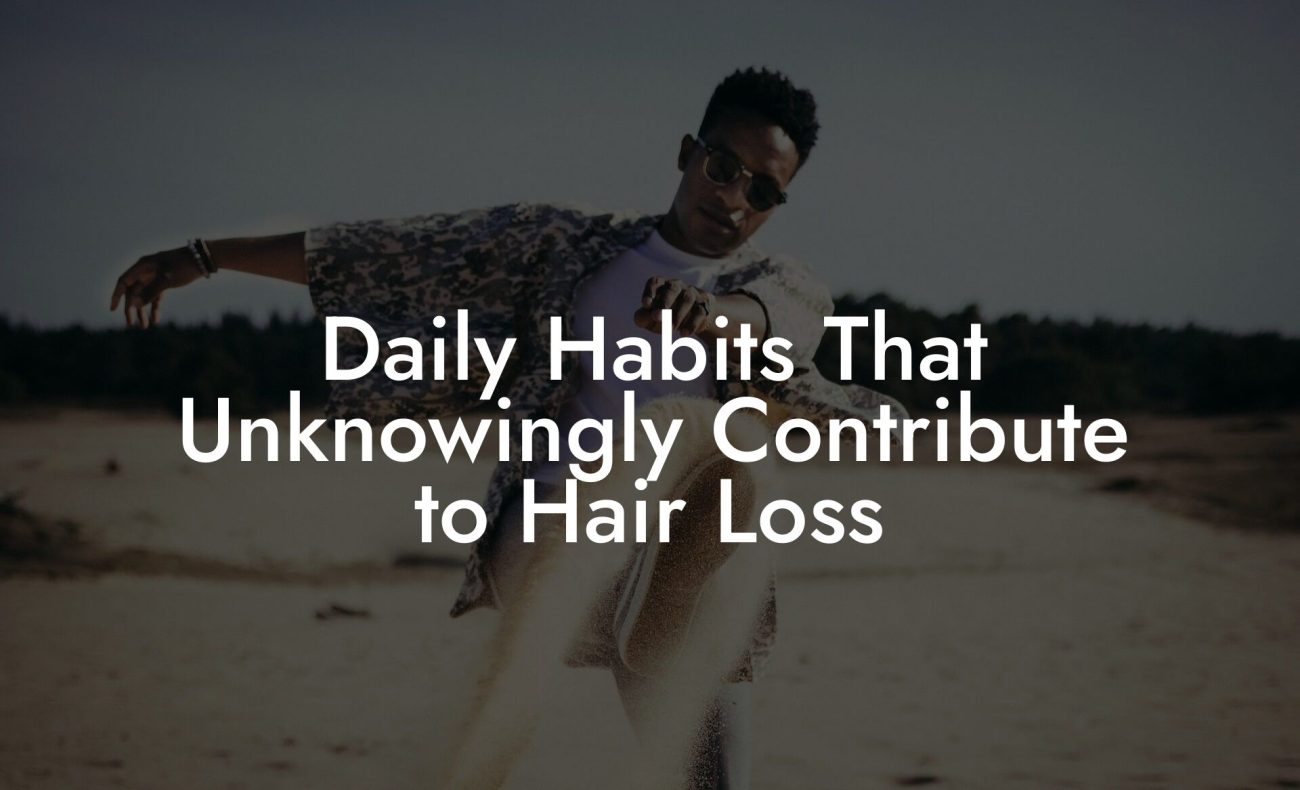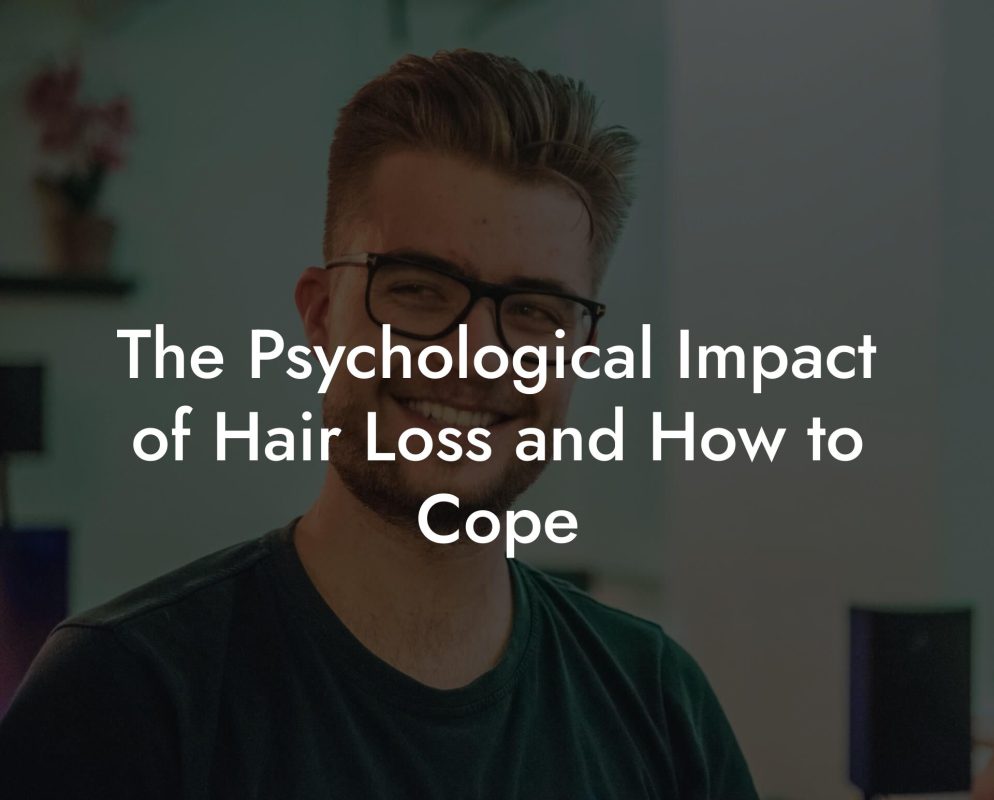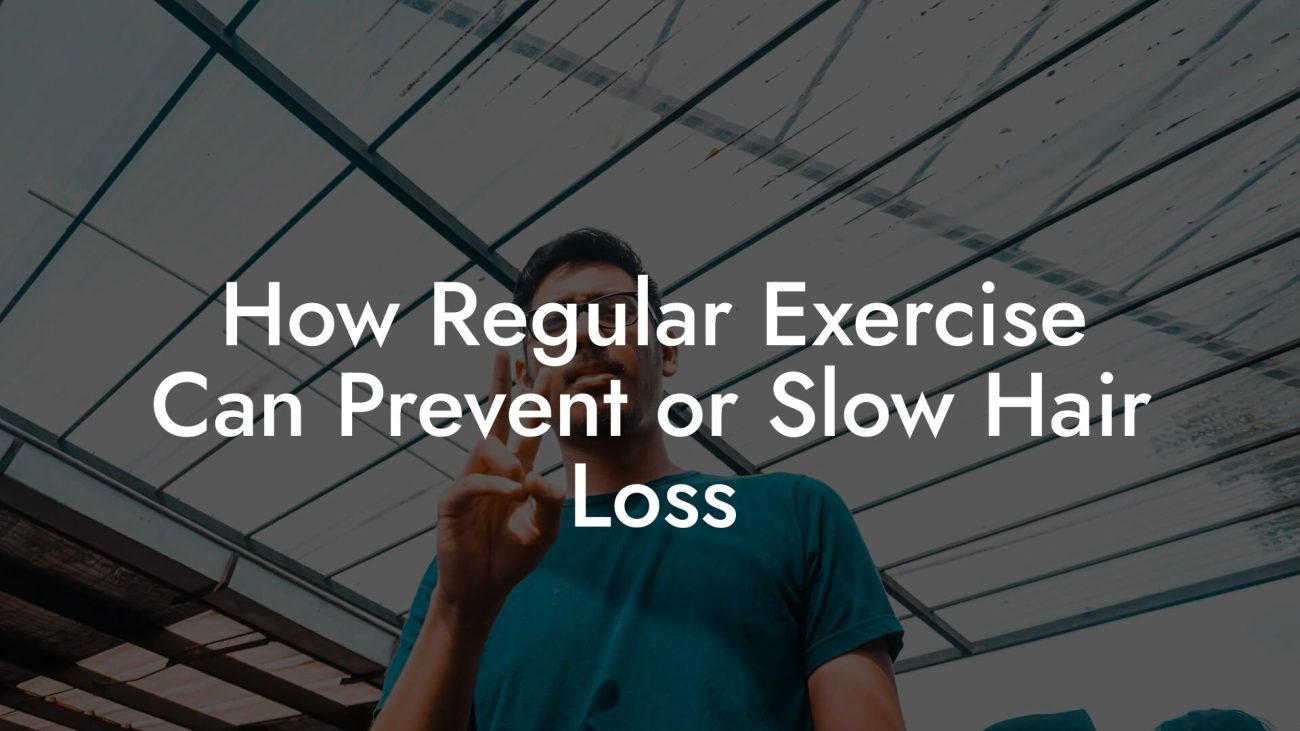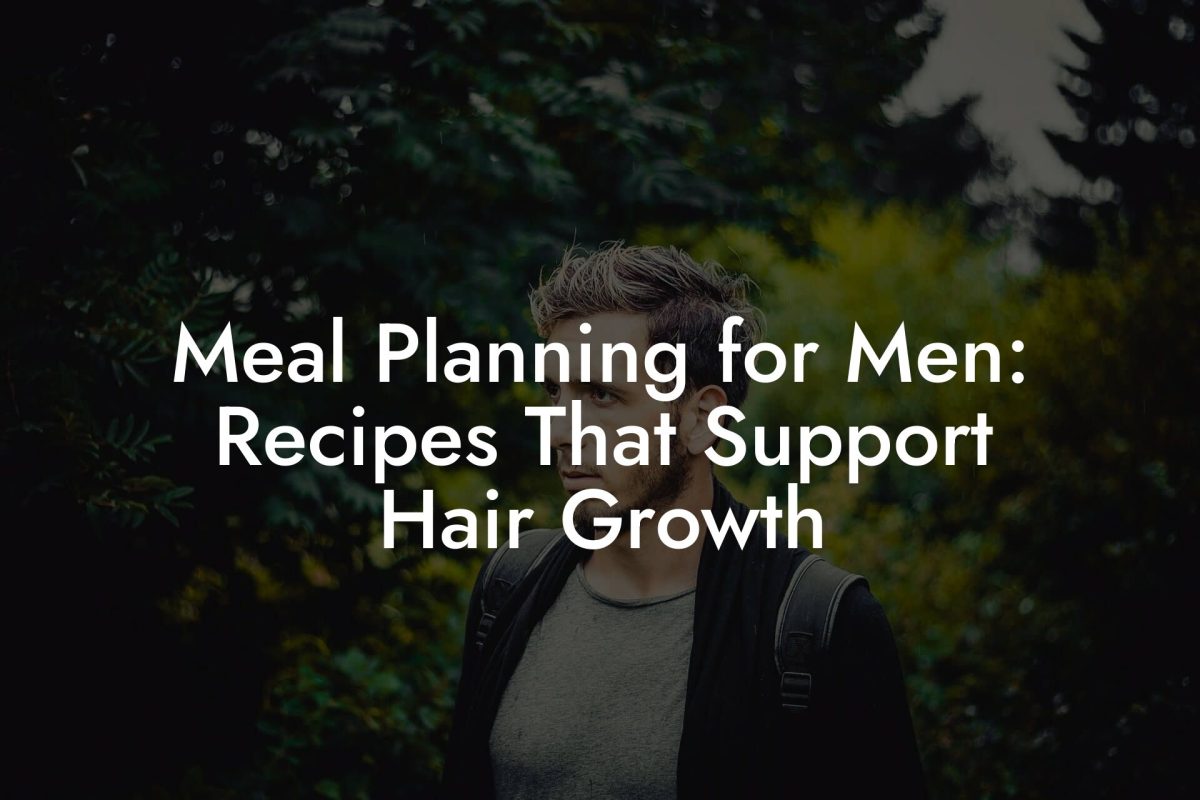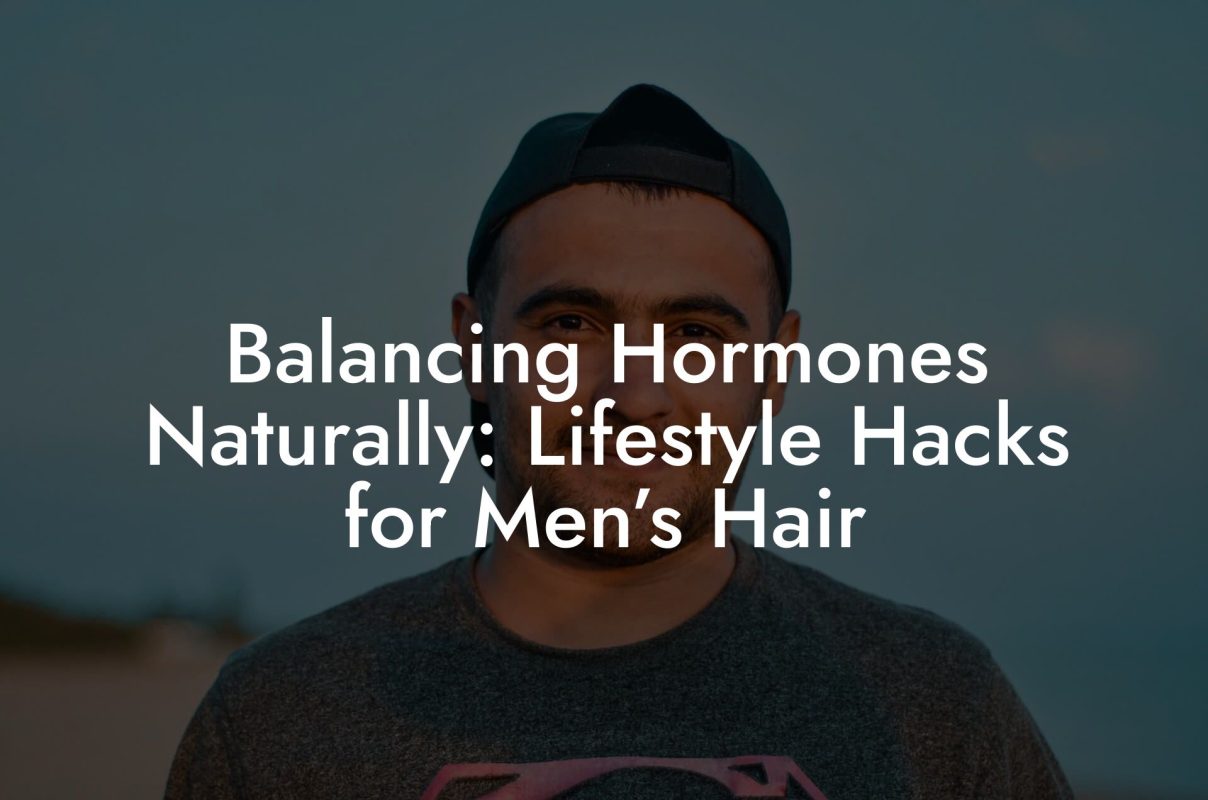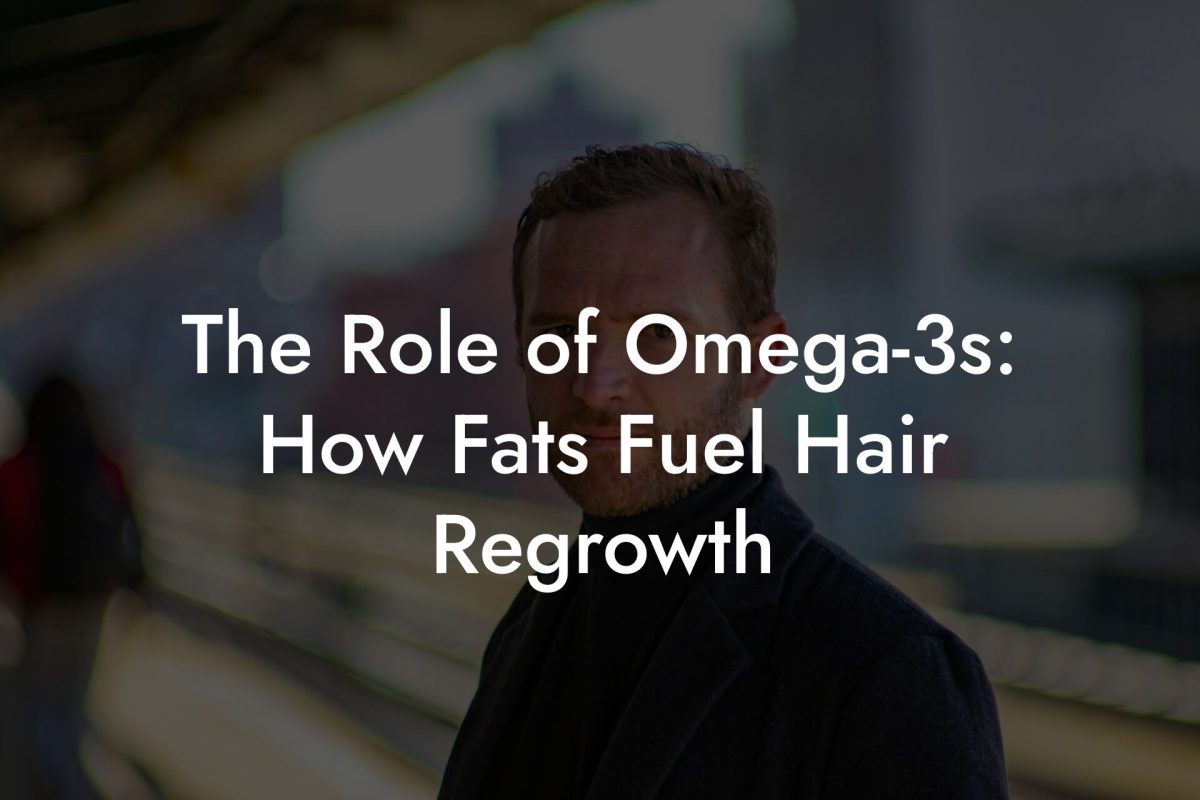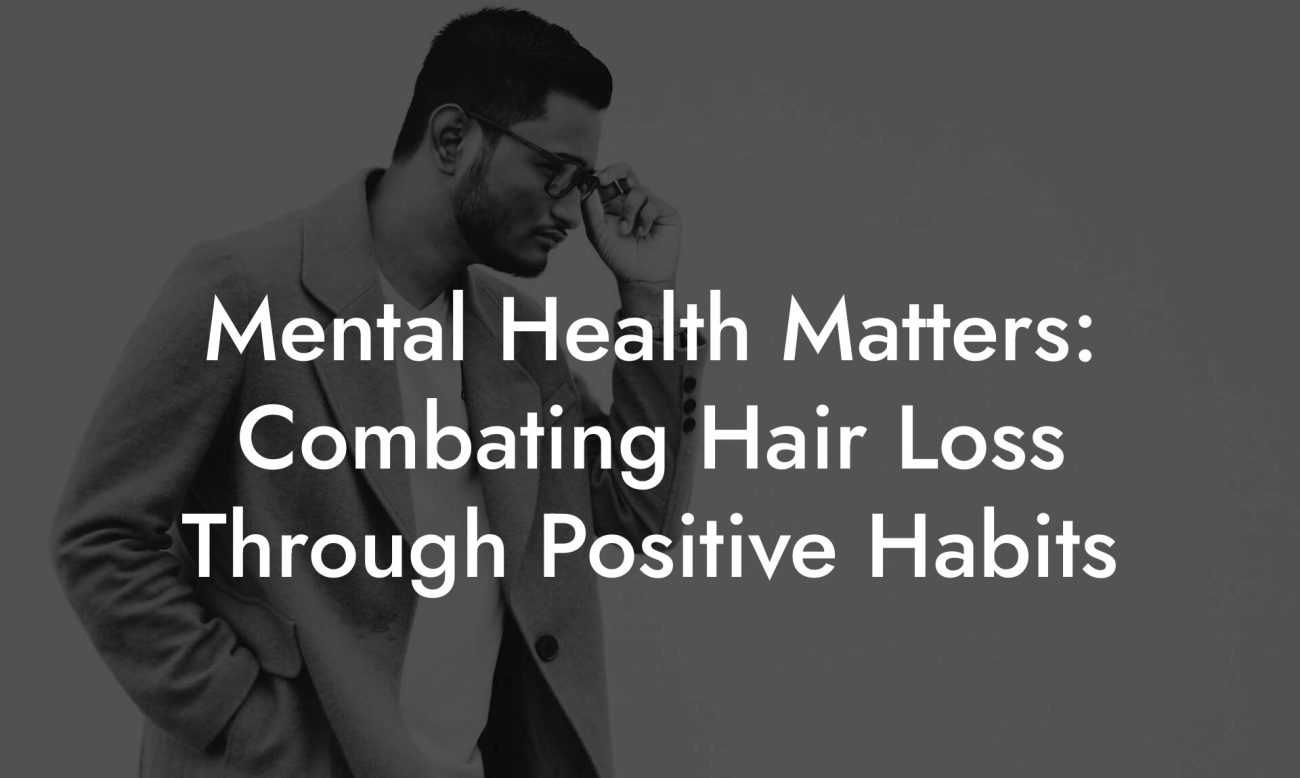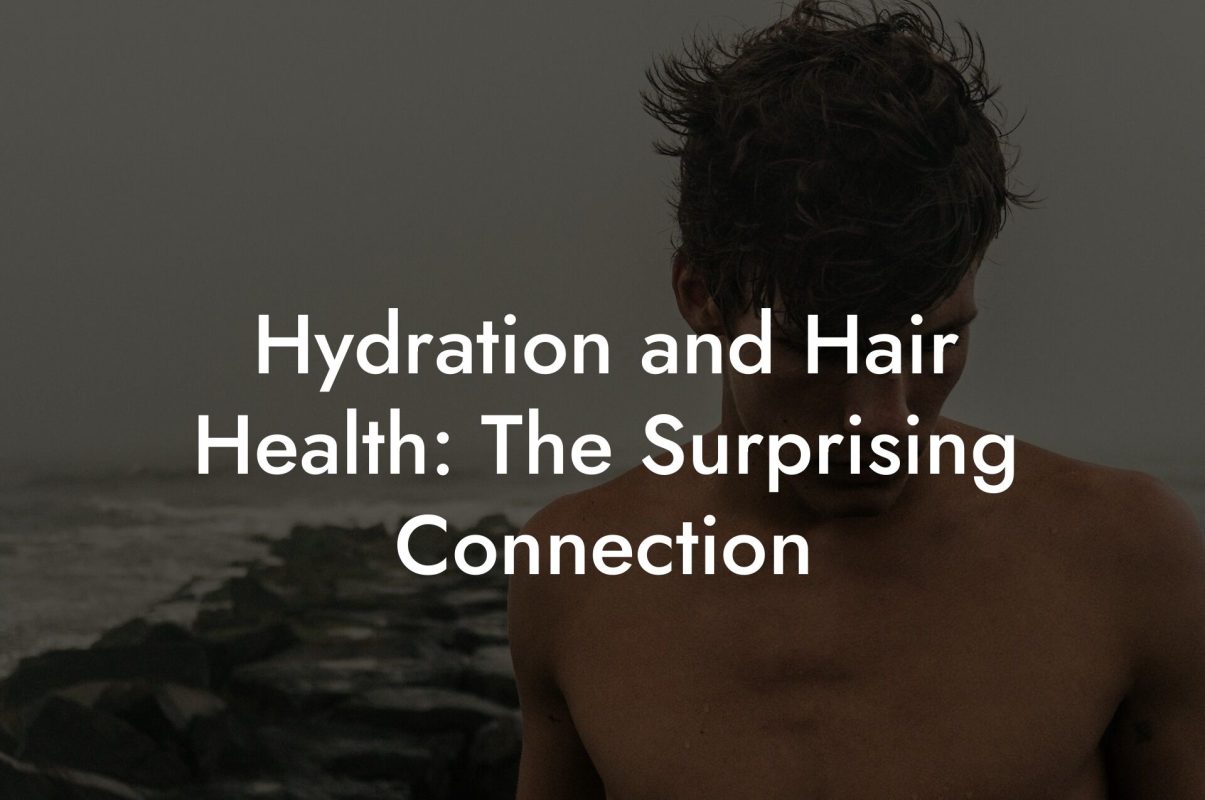Hair Loss Library
Intermittent Fasting and Hair Health: What’s the Link?
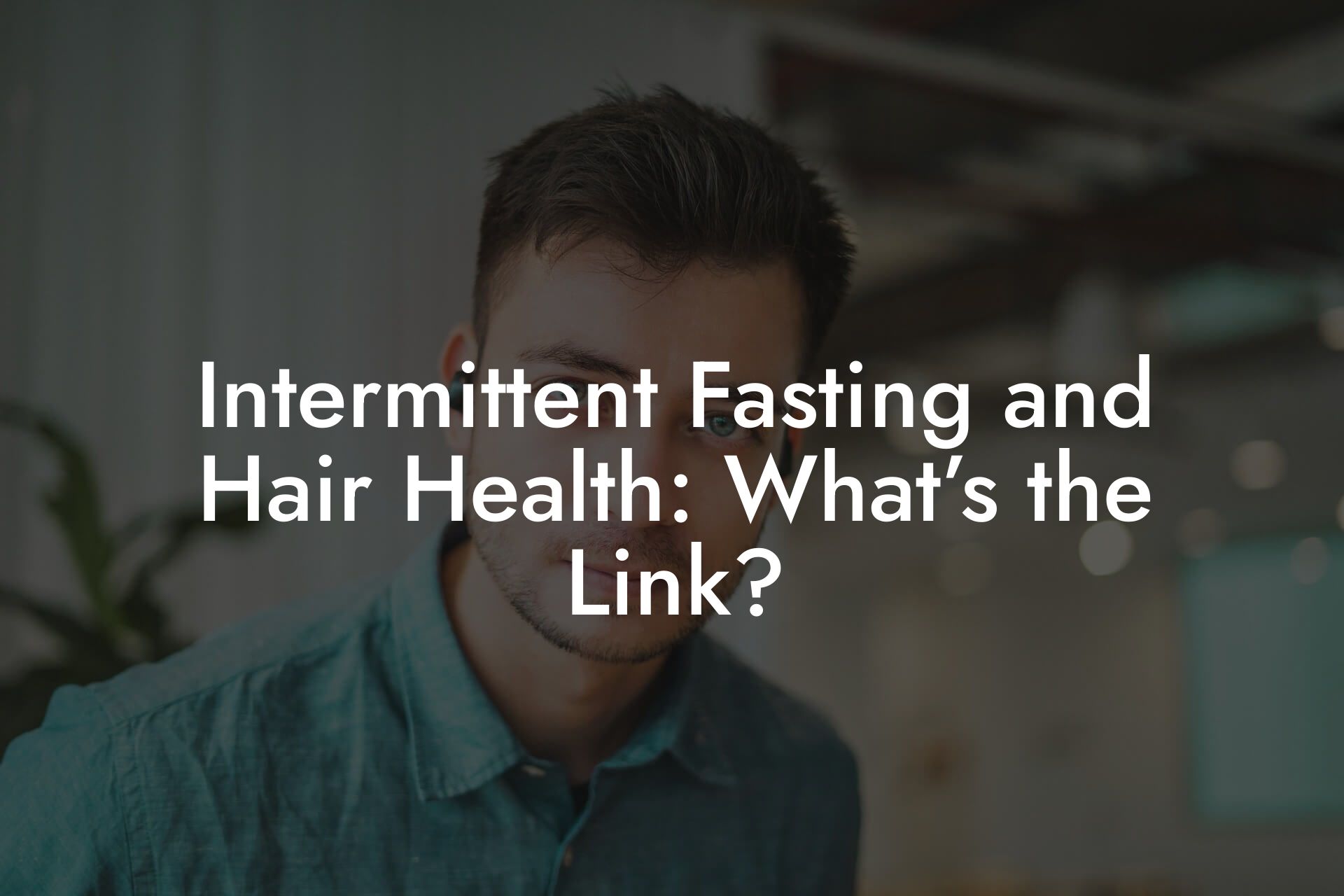
Ever wondered if skipping a few meals could be the secret to saving your luscious locks? Picture this: you're navigating your hectic day with a killer playlist and a hearty dose of self-confidence, when suddenly the thought hits—could intermittent fasting actually be boosting your hair health? Buckle up, because we’re about to dive into the intriguing, sometimes surprising, and definitely thought-provoking connection between intermittent fasting and hair health. Welcome to Mane Matrix’s ultimate guide for the modern man, where we decode the mysteries of mens’ hair loss without the awkward, expensive doctor visits.
The Intermittent Fasting Phenomenon: A Quick Recap
Let’s face it: intermittent fasting (IF) isn’t just some trendy buzzword tossed around in gym circles and on TikTok. It’s a lifestyle shift that’s capturing the attention of Gen Z and millennials alike. At its core, IF is about timing your meals to give your body a break from constant digestion—allowing it to kick into a whole different gear of recovery and regeneration.
But what does this have to do with hair health, you ask? Well, while it may seem like a stretch, the benefits of intermittent fasting reach far beyond just shedding a few pounds or having more energy for your morning runs. Intriguingly, some research and a good dose of anecdotal evidence suggest that the metabolic changes brought on by intermittent fasting might just be a secret weapon in the fight against hair loss.
Dive in with us as we break down the science, bust some myths, and explore practical tips for harnessing the power of intermittent fasting to support robust hair growth and overall vitality.
Intermittent Fasting 101: What, Why, and How?
Intermittent fasting is more than just skipping breakfast or opting for a “fast” weekend—it's a structured eating pattern that alternates between periods of eating and fasting. Whether you’re on the 16/8 plan, the 5:2 plan, or experimenting with alternate-day fasting, the idea is to give your digestive system a break so your body can focus on repair and regeneration.
Key Fasting Protocols Explained
For those new to the scene, here’s a quick rundown:
- 16/8 Method: Fast for 16 hours (including your sleep) and eat during an 8-hour window. Ideal for those with busy schedules.
- 5:2 Diet: Eat normally for 5 days a week, then cut calories drastically for 2 non-consecutive days.
- Alternate-Day Fasting: Alternate between days of regular eating and fasting or minimal calorie intake.
Each method has its own set of benefits and challenges, but the common denominator is the potential to improve your overall metabolic health.
Why Fasting? The Science Behind the Temporary Pause
When you fast, your body shifts its energy source from immediate food processing to stored reserves. This transition triggers a cascade of beneficial processes like improved insulin sensitivity, reduced inflammation, and enhanced cellular repair. For many, these changes are the perfect recipe for better hair health.
Reduced inflammation and improved metabolic function can reduce the oxidative stress that often contributes to hair follicle damage—a major culprit in hair loss. In other words, intermittent fasting might help create a more favorable internal environment for your hair follicles to thrive.
The Hair-Health Connection: How Intermittent Fasting Might Help Your Mane
It might sound like a stretch, but the idea that intermittent fasting could benefit your hair isn’t just nutritional wishful thinking. The process of fasting triggers autophagy—a natural cleansing mechanism where your cells remove damaged components. Think of it as spring cleaning for your body at the cellular level.
When combined with the reduction in inflammatory markers that fasting can bring, the social gossip among your hormones improves dramatically. Hormones like insulin, growth hormone, and even testosterone get a fresh, uncluttered runway to do their jobs more effectively. For men facing hair loss, this hormonal balance could be a game-changer.
Digging Deeper: Metabolism, Hormones, and Hair Growth
At the heart of hair growth lies a delicate interplay of hormones and nutrients. By regulating insulin and reducing oxidative stress, intermittent fasting seems to help pivot your body’s focus to regeneration rather than just digestion. Here’s how:
- Insulin Sensitivity: Enhanced insulin sensitivity means better regulation of blood sugar levels. Stable blood sugar levels can help minimize the hormonal disruptions that contribute to hair thinning.
- Reduced Inflammation: Chronic inflammation is a notorious enemy of healthy hair follicles. Fasting can lower inflammation, potentially reducing the impact of inflammatory cytokines on hair roots.
- Boosted Growth Hormone: Fasting has been linked to increased production of growth hormone, a key player in tissue repair and regeneration—including that important scalp tissue.
In sum, by fine-tuning your body’s internal balance, intermittent fasting might just provide the optimal conditions for your hair follicles to repair, grow, and flourish.
Understanding the Nutrient Equation: Balancing Diet and Hair Health
Before you vow to never nibble mid-day again, it’s crucial to talk about the nutrient equation. Intermittent fasting, when done right, is not about starvation—it’s about smart eating. The periods when you do eat become an opportunity to pack in nutrient-dense foods that are the building blocks of healthy hair.
The Importance of Protein and Healthy Fats
Protein is the cornerstone of hair growth. Keratin, the structural protein that makes up your hair, needs a steady supply of amino acids to remain strong. On your eating window, lean proteins like chicken, fish, tofu, and legumes should be your best buddies.
Healthy fats, especially omega-3 fatty acids found in fish, walnuts, and flaxseeds, help keep your scalp moisturized and reduce inflammation. Including these in your meals can pave the way for a healthier scalp and more resilient strands.
Vitamins and Minerals: The Micronutrient Dream Team
Vitamins and minerals play a supporting but vital role in hair health. Vitamins A, C, D, and E, along with zinc, magnesium, and iron, are known to promote strong hair growth. Integrating a colorful array of fruits and vegetables ensures that your body gets the antioxidants it needs to fight off oxidative damage—helping your follicles stay happy and healthy.
Remember, intermittent fasting doesn’t give you a free pass to binge on junk food during your eating window. In fact, to truly harness the benefits of fasting for hair health, you need to be strategic about your nutrient intake.
Meal Timing and Nutrient Absorption
When you’re following an intermittent fasting plan, timing your meals becomes as important as what you eat. Research suggests that our bodies might operate on a kind of “circadian rhythm” when it comes to nutrient absorption. Eating during peak metabolic hours can enhance nutrient utilization, which is essential for tissues that are constantly regenerating—including your hair follicles.
So, think of your meals as power-packed nutrition sessions. Even if you’re in a time-restricted window, aim to consume balanced meals that seamlessly combine proteins, healthy fats, and vitamins and minerals necessary for scalp health.
Stress, Lifestyle, and Hair Loss: A Modern Man’s Balancing Act
Let’s be real—modern life can be a relentless roller coaster of deadlines, social obligations, and existential memes. Stress levels often go hand in hand with lifestyle factors that contribute to hair loss. The beauty of intermittent fasting is that it can serve as a natural stress-reliever. By giving your digestive system time off, your body reduces the overall stress load, paving the way for lower cortisol levels.
The Cortisol Connection
Cortisol, commonly known as the stress hormone, is like that uninvited guest who wreaks havoc on your scalp health. High levels of cortisol can disrupt the hair growth cycle, leading to thinning and even more hair fall. When you practice intermittent fasting, your body learns to switch off its constant feeding mode, reducing the chronic stress signals that elevate cortisol.
Mindfulness and Me-Time
Beyond the physical benefits, intermittent fasting can offer a chance to re-calibrate your mental state. The routine of fasting often brings along mindfulness practices and an opportunity to reset one’s inner dialogue. This emotional balance is vital because chronic stress, anxiety, and depression are all linked to hair loss.
Incorporate moments of calm into your day—whether it’s a quick meditation, a mindful walk, or simply pausing to appreciate your surroundings. These practices not only temper stress but also amplify the positive effects of your dietary choices.
Lifestyle Tweaks That Complement Fasting
If you’re serious about optimizing hair health, consider these lifestyle tweaks alongside intermittent fasting:
- Regular Physical Activity: Exercise improves circulation, reducing stress and promoting scalp health.
- Sensible Sleep Patterns: Aim for 7-9 hours of sleep; your body does most of its repair work when you’re off in dreamland.
- Hydration: Drinking plenty of water helps maintain skin and scalp moisture, keeping your hair follicles nourished.
- Mindfulness Practices: Engage in activities that promote mental clarity—yoga, meditation, or even a simple digital detox.
Together, these lifestyle elements can create a robust foundation for not only overall wellness but also a thriving mane.
The Scientific Scoop: How Intermittent Fasting Influences Hair Growth
If you’re a science nerd at heart, get ready to geek out. The connection between intermittent fasting and hair health isn’t just philosophical—it’s backed by some fascinating biology. When you fast, several positive shifts occur inside your body:
Autophagy—The Cellular Recycling Program
Autophagy is like sending your cells to a clean-up crew. During fasting, cells break down and recycle old, damaged components. This cleaning process is essential for maintaining healthy hair follicles that are constantly in need of repair. By getting rid of cellular clutter, your scalp can focus on regenerating hair effectively.
Improved Insulin Sensitivity
As mentioned earlier, intermittent fasting superbly optimizes insulin function. When your body becomes more efficient at processing sugars, there’s less of a chance for insulin resistance—a condition that can damage hair follicles over time.
Balanced Hormonal Output
Fasting can help regulate key hormones linked to hair growth. For instance, elevated levels of growth hormone during fasting spur tissue regeneration. At the same time, reduced levels of stress hormones like cortisol allow for a more stable hormonal milieu, which is vital for maintaining a healthy hair cycle.
Oxidative Stress Reduction
Oxidative stress is a major enemy of hair health. By reducing inflammation and promoting antioxidant activity, intermittent fasting lessens the oxidative damage that can wear down your hair follicles over time.
In essence, if you think of your body as a high-performance machine, intermittent fasting is like a scheduled maintenance check that gets everything tuned up for optimal function—including your hair.
Implementing Intermittent Fasting Without Sacrificing Hair Health
Now that we’ve established a promising link between intermittent fasting and improved hair health, how can you integrate these practices into your daily routine while ensuring you’re feeding your follicles adequately? Remember, the goal isn’t merely to fast—it’s to fast smart.
Plan Your Eating Window Intelligently
When adopting an intermittent fasting schedule, plan your eating window to coincide with your body’s peak metabolic state. For most, this might mean having a hearty brunch loaded with proteins, healthy fats, and colorful veggies, followed by a balanced dinner.
Avoid the temptation to treat your eating window like a “cheat period.” Instead, focus on nutrient-dense meals that support cellular repair and overall wellness. Your hair follicles will thank you for all that love.
Monitor Your Nutrient Intake
It’s tempting to dive headfirst into fasting and neglect the importance of vitamins and minerals. Regularly include foods rich in biotin, vitamin D, zinc, and iron. If you’re unsure whether you’re getting everything you need, it might be worth chatting with a nutritionist or your friendly neighborhood health consultant.
Listen to Your Body
Every man’s body is a unique ecosystem. While some might see immediate benefits from intermittent fasting, others may notice a lag in results. Pay attention to your energy levels, scalp condition, and overall well-being. Adjust your fasting pattern as needed—perhaps a shorter fast on hectic workdays, or richer meals after intense gym sessions.
In this journey to optimize hair health, flexibility is key. If you notice any unexpected changes like excessive dryness or irritability, it may be time to reassess your approach.
Integrative Strategies: Combining IF With Traditional Hair Loss Treatments
Let’s be honest—if you’re here, you’re likely exploring every angle to curb hair loss. While intermittent fasting has its perks, it works best when combined with other proven hair health strategies. Think of it as assembling the ultimate hair care Avengers team.
Here are some integrative strategies to try:
- Prescription and Over-the-Counter Treatments: Pair IF with scientifically backed treatments like minoxidil or finasteride, as recommended by your specialist. These can target hormonal imbalances and stimulate hair growth at the follicular level.
- Scalp Massage and Microneedling: Improve blood flow to the scalp with regular massages or microneedling sessions, which may work synergistically with the regenerative benefits of intermittent fasting.
- Anti-Inflammatory Supplements: Consider natural supplements rich in omega-3 fatty acids, biotin, and collagen. These can help support your eating window efforts while reducing inflammation at the scalp.
- Stress Management Techniques: Mix in mindfulness practices or yoga. Reducing overall stress levels amplifies the benefits of IF and aids in maintaining a steady hormonal environment conducive to hair growth.
Pairing these approaches with intermittent fasting isn’t about reinventing the wheel—it’s about embracing a holistic routine that targets hair loss from multiple angles.
The synergy between advanced treatments and lifestyle tweaks can create a robust defense against hair loss, ensuring that your mane remains as impressive as your hustle.
Real-Life Stories: When Intermittent Fasting Met the Mane
Sometimes, the best evidence isn’t found in textbooks but in real-life experiences. Let’s take a look at a few inspiring stories from men who turned to intermittent fasting as one of the tools in their hair health arsenal.
Case Study 1: Mark’s Makeover
Mark, a 32-year-old tech consultant, had been battling early signs of hair thinning for years. Tired of expensive treatments that promised miracles, he decided to try intermittent fasting. Within a few months of embracing the 16/8 method and focusing on nutrient-dense meals loaded with lean protein and vitamins, Mark saw a noticeable difference. His scalp felt healthier, and his hair appeared thicker. Combining IF with a regular scalp massage routine and over-the-counter topical treatments, Mark’s renewed confidence wasn’t just skin-deep—it was hair-deep.
Case Study 2: Chris’s Comprehensive Approach
Chris, a 40-year-old entrepreneur constantly juggling meetings and marketing campaigns, realized that his stress levels were impacting his hair health. Determined to take control, he reconfigured his lifestyle by incorporating intermittent fasting with his daily meditation and workouts. By adjusting his eating window and ramping up his nutrient intake, Chris experienced improved energy, reduced stress, and a surprising boost in hair density. What started as a casual experiment became a comprehensive regimen that not only supported his scalp health but also elevated his overall well-being.
Case Study 3: Derek’s Wake-Up Call
Derek, a 28-year-old social media influencer, noticed his hair falling out at an alarming rate right when he was about to land a major campaign. After some research, he decided to adopt intermittent fasting alongside proven hair growth supplements and a revamped skincare routine for his scalp. As weeks passed, Derek was not only getting more engaged followers but was also receiving compliments on his thicker, healthier hair. His experience is a testament to how small lifestyle changes can lead to significant improvements, especially when combined with modern hair loss treatments.
These stories illustrate that while intermittent fasting isn’t a one-size-fits-all miracle, it can serve as a critical piece in the larger puzzle of hair health, especially when integrated into a holistic lifestyle.
Potential Pitfalls: What to Watch Out for with Intermittent Fasting
As with any lifestyle change, it’s important to be aware of potential pitfalls. Intermittent fasting is not an all-or-nothing approach—if done incorrectly, it might even backfire on your hair health.
Nutrient Deficiencies: Skipping meals can sometimes lead to missing out on essential nutrients. Without proper meal planning, you might end up with deficiencies that affect hair growth, such as low iron or inadequate protein levels.
Over-Fasting: Going too long without food can stress the body. Instead of triggering repair, extreme fasting might signal the body to conserve energy, which isn’t ideal for tissue regeneration—including that of your scalp.
Stress and Imbalances: While intermittent fasting can reduce stress when balanced correctly, for some men, an overly rigid schedule might contribute to physiological stress. Listen to your body, and if your energy levels drop drastically or you start noticing other adverse symptoms, consider adjusting your fasting window.
The key is balance: combine informed nutritional choices with intermittent fasting and don’t shy away from seeking professional guidance if things feel off track.
Resources and Community Support: Your Next Steps
Embracing intermittent fasting for hair health is a journey, one that’s best navigated with the help of community and reliable resources. At Mane Matrix, we’re all about giving you the tools and insights you need to make informed decisions about your hair wellness—without the stigma and sky-high doctor bills.
Here are some resources and community support avenues to help you stay on track:
- Mane Matrix Blog: Dive into in-depth articles, tips, and the latest research on active lifestyle choices and hair health breakthroughs.
- Online Forums and Social Media Groups: Join communities of like-minded men who share tips, personal stories, and motivational challenges about intermittent fasting and hair loss management.
- Nutrition and Fitness Apps: Track your fasting windows, nutrient intake, and exercise routines with apps that integrate seamlessly with your lifestyle goals.
- Consultation Services: Our platform offers opportunities to connect with experts who specialize in hair loss and nutritional strategies, ensuring your approach is both balanced and effective.
- Workshops and Webinars: Engage in interactive sessions where experts share insights and practical advice on navigating intermittent fasting alongside other hair treatments.
By tapping into these resources, you not only educate yourself but also join a vibrant community that champions holistic health—a community that understands that good hair days start with a healthy lifestyle, inside and out.
Crafting Your Personalized Plan for Optimal Hair Health
One size doesn’t fit all, and when it comes to intermittent fasting, the same holds true. Crafting a personalized plan entails understanding your unique metabolic needs, hair health goals, and lifestyle rhythms. Here’s a straightforward blueprint to guide you:
Step 1: Assess Your Current Lifestyle and Health
Begin by taking note of your daily habits—when you eat, how much water you drink, your sleep quality, and overall stress levels. Consider whether you’re already experiencing signs of nutrient deficiencies or unusual hair loss.
Step 2: Define Your Hair Health Goals
Whether you’re aiming to prevent further thinning, encourage fuller hair, or simply boost scalp vitality, set clear and achievable objectives. This could range from structured fasting routines to integrating a new supplement regimen.
Step 3: Choose a Fasting Protocol
Based on your lifestyle and goals, select an intermittent fasting method that best suits your routine. If you’re new to fasting, the 16/8 method might be a great starting point which allows for enough eating time to cover your nutritional bases.
Step 4: Optimize Your Diet
Plan your eating window carefully. Focus on whole, unprocessed foods rich in proteins, healthy fats, vitamins, and minerals crucial for sustaining hair growth. Incorporate antioxidant-rich fruits and vegetables to combat oxidative stress.
Step 5: Monitor, Adjust, and Stay Accountable
Track your progress regularly—note how your body responds, any changes in your hair’s appearance, and your overall energy levels. Use apps, journals, or even social community groups to stay accountable and fine-tune your plan as needed.
Remember, your journey is uniquely yours. Don’t be discouraged by occasional setbacks; every experiment is a step towards discovering what works best for your body.
Intermittent Fasting and Hair Health: Frequently Asked Questions
We know you might have questions swirling around like strands of fine hair on a windy day. Here are some frequently asked questions to help clear up any doubts about intermittent fasting’s role in hair health.
1. How Does Intermittent Fasting Impact Hair Health?
Intermittent fasting can trigger autophagy and improve insulin sensitivity, both of which reduce inflammation and oxidative stress—creating a more supportive environment for hair growth.
2. Can Skipping Meals Really Help Prevent Hair Loss?
It might seem counterintuitive, but the benefits of fasting aren’t about going hungry—they’re about allowing your body time to repair. With better metabolic balance and reduced oxidative stress, intermittent fasting may help combat the hormonal imbalances that contribute to hair loss.
3. Is the 16/8 Method the Best Choice for Hair Health?
There isn’t a one-size-fits-all method. Many men find success with the 16/8 approach due to its flexibility, but your individual lifestyle and nutritional needs may guide you toward a different fasting protocol.
4. What Are the Risks of Intermittent Fasting for Hair Health?
Without proper nutrition, intermittent fasting could lead to deficiencies that may negatively impact hair health. It’s essential to consume nutrient-dense foods during your eating window and consult with a healthcare provider if you experience any adverse effects.
5. Can Intermittent Fasting Work Alongside Traditional Hair Loss Treatments?
Absolutely. Many men find that combining intermittent fasting with established treatments like minoxidil or even lifestyle tweaks creates a synergistic effect that supports overall hair health.
6. How Long Does It Take to Notice Benefits for Hair Health?
Results vary widely based on individual physiology and adherence to the plan. Some may notice improvements within a few months, while for others, it may take longer—a consistent, balanced approach is key.
7. Can I Practice Intermittent Fasting if I Have a Busy Lifestyle?
Yes! Many find that intermittent fasting simplifies meal planning while providing the cognitive clarity to handle a busy schedule. It’s all about finding a routine that integrates seamlessly with your daily life.
Your Mane Matrix Journey: Embracing A Holistic Approach to Hair Health
In a world where every minute counts and life moves at the speed of a viral meme, it pays to think outside the (hair) box. Intermittent fasting isn’t just about discipline or skipping breakfast—it’s about resetting your body’s natural rhythms to create an environment where hair can thrive. By balancing your nutrient intake, managing stress, and strategically timing your meals, you pave the way for healthier hair that battles thinning and hair loss head on.
At Mane Matrix, we believe in empowering men to take charge of their hair health through informed decisions and holistic lifestyle tweaks. Whether you’re just beginning your journey with intermittent fasting or have been around the block a few times, remember that every positive change—from a mindful bite of food to a relaxing moment of meditation—contributes to a stronger, more resilient mane.
Embrace the journey with confidence. Fine-tune your routine as needed, trust your body’s signals, and join a community of like-minded individuals who are redefining what it means to maintain healthy, full hair in the modern age. Your path to better hair starts with a single mindful bite. Here’s to a future where every strand of hair stands tall and every man owns his style with pride!
Ready to take your mane to the next level? Dive in, experiment, and discover how intermittent fasting can be a powerful ally in your hair health regimen. Cheers to healthy hair days ahead!
If you loved this article... Dive deeper into the world of mens hair loss with our most popular sections. If there is anything you think is missing or anything you would love for us to write about, just give us a shout.





